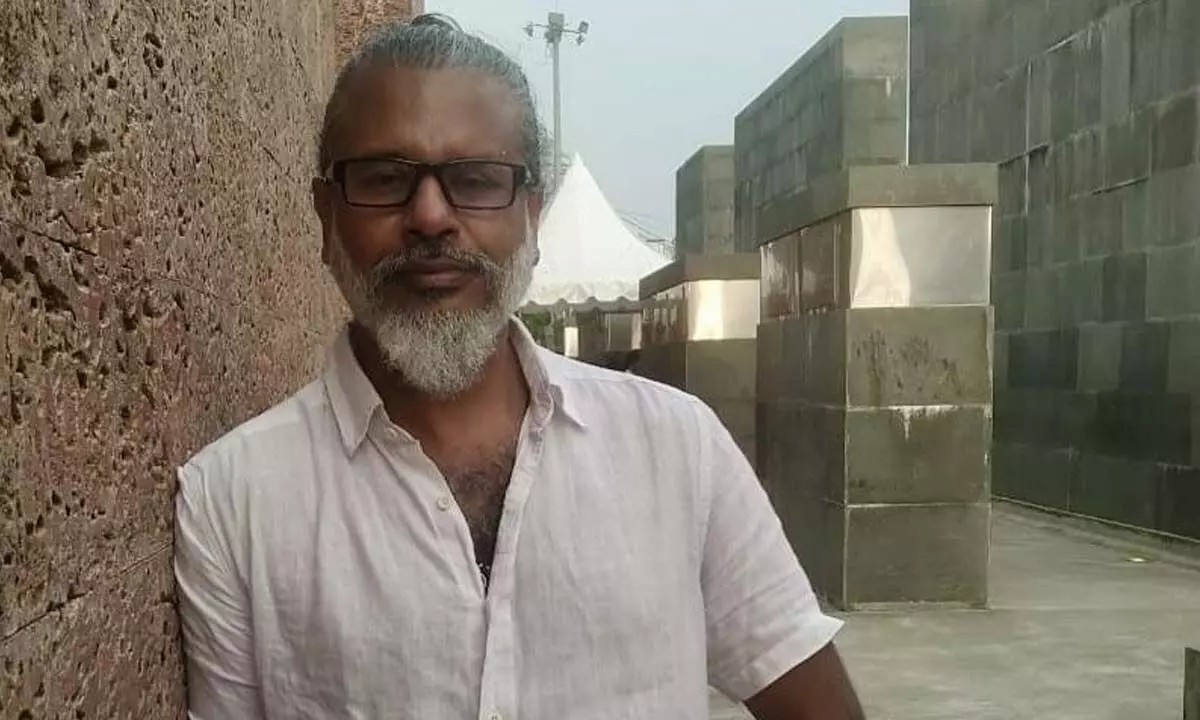Live
- Death toll in Punjab building collapse rises to two
- Make Christmas celebrations merrier and healthier with California almonds
- A carrom ball that bowled everyone: PM writes to Ashwin on his retirement
- Kashi Math Samsthan seer worships Lord Balaji
- Gold rates in Delhi today stable, check the rates on 22 December, 2024
- Gold rates in Vijayawada today stable, check the rates on 22 December, 2024
- Purandeswari responds to Allu Arjun arrest in stampede case, says it is not one's fault
- Threads of trust and love
- Belagavi AICC session centenary message
- Gold rates in Hyderabad today stable, check the rates on 22 December, 2024
Just In
In Lanka, there is collective amnesia about the civil war: Booker Prize-winning author Shehan Karunatilaka


In Lanka, there is collective amnesia about the civil war: Booker Prize-winning author Shehan Karunatilaka
Believe it or not, it was quite a task for Sri Lankan author Shehan Karunatilaka to find a UK publisher for his second novel 'The Seven Moons of Maali Almeida', which went on to win the prestigious Booker Prize - 2022.
Believe it or not, it was quite a task for Sri Lankan author Shehan Karunatilaka to find a UK publisher for his second novel 'The Seven Moons of Maali Almeida', which went on to win the prestigious Booker Prize - 2022. "Frankly, those in the West are not clamoring for Sri Lankan books about wars that people have forgotten," he smiles.
Adding that he discovered about winning the prize with the rest of the world, Karunatilaka says that while with the long and shortlist, people do get a heads up, but that was not to be in his case. "Frankly, I went to the ceremony quite content that the book had been short-listed. The judges usually drag it out while announcing the winner, but these just went for it. I walked up and made the speech, and then the next 48 hours were just about interviews. Of course, it has sunk in by now," he tells.
The prize-winning book revolves around the recently deceased Maali Almeida, a war photographer, who wakes up as a ghost and has seven days to identify his killer. The story is set in the 1980s, during the early years of Sri Lanka's civil war between government forces and the LTTE.
The author, who is attending the 6th Kerala Literature Festival (KLF) in the coastal town says that while all works require a special effort, this one took quite a long and demanded multiple drafts. "Rewriting the complete draft during the Pandemic, I was relieved to have finished the writing process."
Admitting that in Sri Lanka, there is collective amnesia about the civil war, with people not feeling the need to talk about it -- no wonder very few books have been written and films made on the subject -- Karunatilaka says it is important to acknowledge that there are many who have not found closure.
"I would like to read more stories. To move forward, we must hear each other's tales. Mostly outsiders have written about the war, and that too about the final phase. Maybe new and young authors will look at it more objectively, and address unhealed wounds."
The author, who has completed research and started writing his next this year says it will be a light book, an ensemble comedy centering around Sri Lanka's corporate world. "Both the books have had a strong protagonist. I might write the third one in the third person. I researched for two-three years for my first one (book), and there are plenty of subjects to write about," says this former advertising professional.
Anguished over the economic crisis plaguing the island nation, the author says there was much optimism after the civil war ended. "And then we had the 2019 bombings which broke my heart. While we knew the economic crisis was coming, nobody, including financial experts imagined that Sri Lanka would default. I am a middle-class guy -- and we had gas shortages and got firewood etc. Someone like me can still bear it, but for most of the population, it means skipping a meal."
Stressing that he still practices the process he employed during his advertising days, Karunatilaka says what has changed is the time it takes to write. "Research, brainstorm, and write. While in advertising, a campaign would take a few weeks, a novel takes years. Researching is my favourite part. I make a lot of notes and fill up pages. The first draft is the toughest. I do not mind editing. When you have a draft, then it is easy to pull pieces together and hope for the best," he concludes.

© 2024 Hyderabad Media House Limited/The Hans India. All rights reserved. Powered by hocalwire.com






